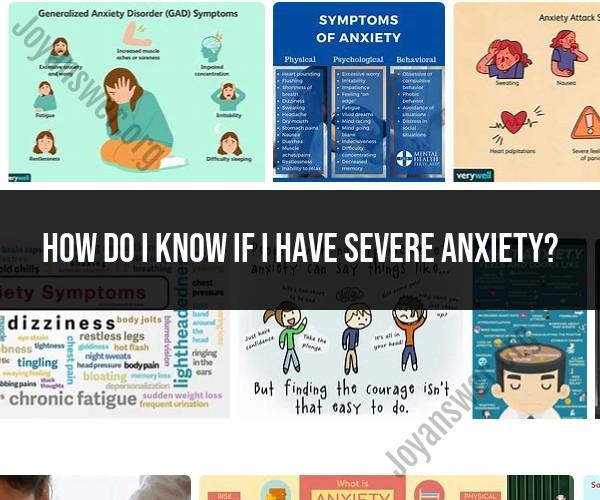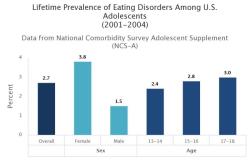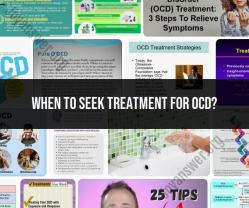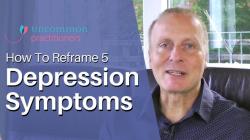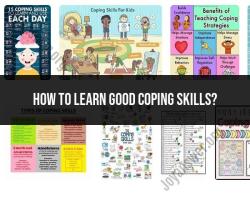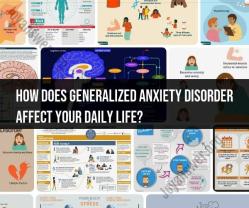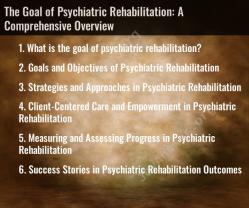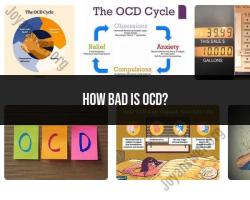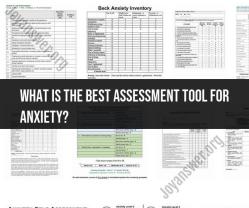How do I know if I have severe anxiety?
Recognizing severe anxiety in yourself can be challenging, as anxiety symptoms can vary from person to person. However, there are common signs and symptoms associated with severe anxiety that you can look out for. If you suspect you have severe anxiety, it's essential to seek professional help from a mental health provider. Here are some signs and symptoms of severe anxiety:
Excessive Worry: Severe anxiety often involves persistent and excessive worry about a wide range of concerns, including daily activities, relationships, and future events.
Physical Symptoms: Anxiety can manifest physically, leading to symptoms such as rapid heartbeat, shortness of breath, chest pain, trembling or shaking, sweating, nausea, dizziness, and muscle tension.
Restlessness: Feeling restless, on edge, or unable to relax is a common symptom of severe anxiety. You may find it challenging to sit still or concentrate.
Irritability: Severe anxiety can lead to irritability and an inability to tolerate minor stressors or frustrations.
Sleep Disturbances: Anxiety often disrupts sleep patterns, causing difficulties falling asleep, staying asleep, or experiencing restful sleep. You may also have vivid and distressing dreams.
Fatigue: Constant worry and physical tension can lead to persistent fatigue and a feeling of being drained.
Difficulty Concentrating: Anxiety can impair your ability to concentrate and make decisions. You may find it challenging to focus on tasks or remember important information.
Avoidance Behavior: People with severe anxiety may avoid situations or places that trigger their anxiety, leading to social isolation or difficulties in daily functioning.
Panic Attacks: Severe anxiety can lead to panic attacks characterized by sudden and intense fear or discomfort. Symptoms of a panic attack may include chest pain, sweating, trembling, and a feeling of impending doom.
Physical Health Problems: Chronic anxiety can contribute to physical health issues, including digestive problems, headaches, and a weakened immune system.
Perfectionism: Some individuals with severe anxiety may exhibit perfectionistic tendencies, constantly seeking to achieve unrealistically high standards to reduce their anxiety.
Emotional Distress: Severe anxiety often leads to intense emotional distress, including feelings of dread, apprehension, and a constant sense of unease.
Social and Occupational Impairment: If your anxiety symptoms significantly interfere with your ability to work, maintain relationships, or engage in everyday activities, it may be a sign of severe anxiety.
Cognitive Distortions: Anxiety can lead to distorted thinking patterns, including catastrophizing (assuming the worst will happen), black-and-white thinking (seeing things in extremes), and overgeneralization (drawing negative conclusions based on limited evidence).
If you recognize several of these signs and symptoms in yourself and they are causing significant distress or impairment in your daily life, it's crucial to seek help from a mental health professional. Anxiety disorders are treatable, and a mental health provider can work with you to develop a personalized treatment plan, which may include therapy, medication, lifestyle changes, or a combination of approaches to help you manage and overcome severe anxiety.
Signs and Symptoms: How to Recognize Severe Anxiety
Severe anxiety is a mental health condition that can cause significant distress and impairment in daily life. It is characterized by excessive and persistent worry and fear. People with severe anxiety may experience a variety of physical and emotional symptoms, including:
- Physical symptoms: Racing heart, sweating, trembling, shortness of breath, chest pain, dizziness, headache, stomachache, nausea, fatigue, muscle tension
- Emotional symptoms: Worry, fear, panic, irritability, restlessness, difficulty concentrating, difficulty sleeping
Seeking Help: Steps to Take If You Suspect Severe Anxiety
If you are concerned that you or someone you know may have severe anxiety, it is important to seek professional help. A therapist can diagnose anxiety and develop a treatment plan that is right for you.
Here are some steps you can take to seek help for severe anxiety:
- Talk to your doctor or a mental health professional. They can assess your symptoms and make a diagnosis.
- Consider therapy. Therapy can help you learn coping skills to manage your anxiety and improve your quality of life.
- Consider medication. Medication can be used to reduce the symptoms of anxiety. However, it is important to note that medication is not a cure for anxiety. It is important to use medication in conjunction with therapy.
Understanding the Impact: Living with Severe Anxiety
Living with severe anxiety can be challenging. It can interfere with your work, relationships, and overall well-being. However, there are things you can do to manage your anxiety and live a fulfilling life.
Here are some tips for living with severe anxiety:
- Learn about anxiety. The more you know about anxiety, the better equipped you will be to manage it.
- Identify your triggers. What are the things that make your anxiety worse? Once you know your triggers, you can start to develop strategies for coping with them.
- Develop coping skills. There are a number of coping skills that can help to reduce anxiety, such as deep breathing, relaxation techniques, and positive self-talk.
- Build a support network. Having supportive friends and family members can make a big difference in managing your anxiety.
- Take care of yourself. Make sure to get enough sleep, eat a healthy diet, and exercise regularly. Taking care of yourself can help to reduce stress and improve your overall well-being.
Remember, you are not alone. Millions of people around the world experience severe anxiety. There are treatments and support available to help you manage your anxiety and live a fulfilling life.
